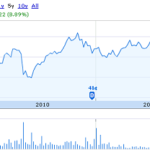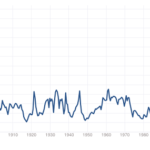As many experienced binary options traders know, some brokers offer partial refunds to binaries that expire out of the money. In other words, when a BO expires worthless (as it is arguably supposed to be), some of them offer to return a portion of the invested sum back to the BO trader who made the bad investment decision. But could this be a bad idea? Some critics point out that binary options were always supposed to be a zero-sum game and that this practice is in reality a bad precedent. Are they right?
A Zero-sum Game
By default, binary options are supposed to have only two possible outcomes: one of them is that the prediction of the trader is correct, in which case they expire in the money and the other is where the trader was wrong and the binaries expire worthless. In the first scenario, the trader gets the invested amount, plus the return that was agreed upon, and in the event he or she was wrong, they were supposed to remain empty-handed.
However, this type of zero-sum game where somebody has to lose in order for somebody else to gain did not sit well with some of the traders. What helped keep these guys honest was the fact that they themselves did not really have a horse in this race. The money that half of traders lost was distributed among the other half, and brokerages got whatever is left after the fact. What determined the best broker in the industry was the ability to distribute the money as efficiently as possible, offering the best returns without risking any money of their own.
So what happens if they miscalculate?
Well, traders are owed funds, and these have to come from somewhere, so if there isn’t enough money in the pool to cover the costs, it is the broker that is supposed to provide the rest. Too many of these can ruin them financially and encourage illicit activities. And yet, most of the reliable and reputable ones had no problems living up to this standard, until the competition got really fierce. Some of them started offering partial refunds even to traders whose binaries expired out of the money.
So where did this money come from? As we said, binary options are not supposed to work like this. Any temporary benefit that traders might enjoy as well as the extra trading volume are a double-edged sword. The tacit agreement is that there will be enough money on hand to cover all of the transactions and that traders’ funds will be kept segregated and used only in accordance with the universally accepted rules.
The problem is that this system of competitively high return rates and refunds is bound to burst at some point, and when that happens, what will become of traders who trusted these blokes? Are they that offer a 15% refund to OTM binaries really going to outlast those that do not? There is no way of telling, but one thing is for certain: any trader that signs up with one of them is running a risk that they may not be aware of. Hopefully, now they will be.
Are things really that bad?
Not necessarily. It all depends on how well the broker manages the funds that they have been entrusted with. If they can crunch the numbers well enough, there should be more than enough money to go around, refunds or not. This is where all those years of experience that traders are advised to look for in a brokerage come into play. Simply put, most of them owe their longevity in this business to their ability to maintain this balance and preserve the integrity of their clients’ accounts. This does not mean you should shy away from new ones, but experience does matter in the end.
Conclusion
In case you were wondering whether it is better to choose the one that offers refunds for OTM binaries or not, of course it is better for you as a trader to go with the refund. However, you need to keep in mind the possibility that this one is more likely to go broke than those that do not offer refunds. Ideally, you need a reputable and established one that offers these refunds. These guys know what they are doing.











{ 0 comments… add one now }